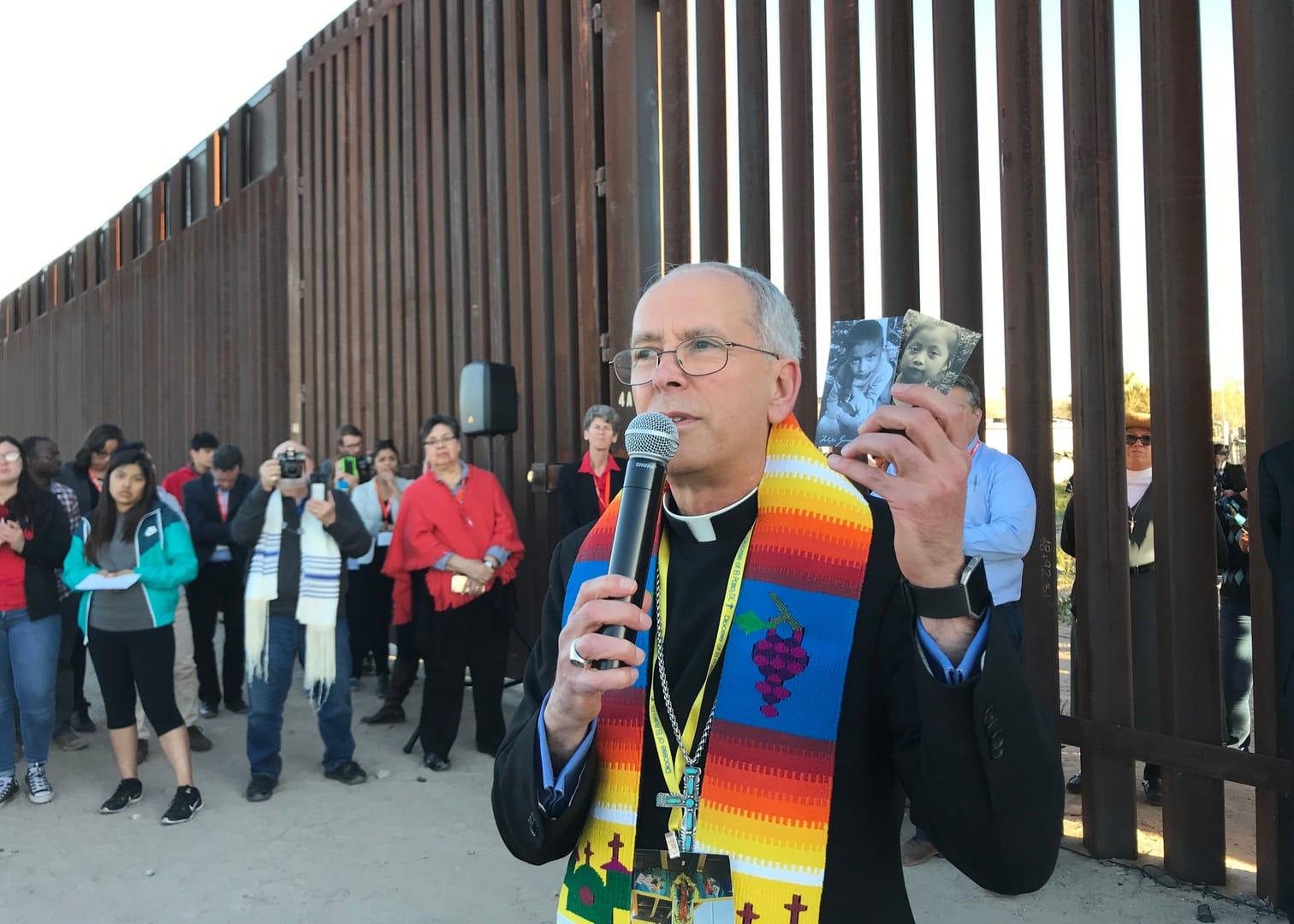NEW YORK – Commenting on a recently unveiled bipartisan border security proposal, the U.S. Bishops’ Migration Chair has told lawmakers that the “right and responsibility” to manage the border should not come at the expense of humanitarian protection.
“The legitimate interests of the state to regulate immigration and to safeguard the wellbeing of the existing population should not be carried out in such a way that concern for the lives of newcomers is set aside and vice versa,” Bishop Mark Seitz of El Paso, wrote in a Feb. 6 letter.
The letter is addressed to Senators Chuck Schumer and Mitch McConnell, the majority and minority leaders respectively. House Speaker Mike Johnson, Minority Leader Representative Hakeem Jeffries and all U.S. Senators were copied on the text.
While the bill was only introduced in the Senate and not voted on, Johnson has already made it clear House Republicans don’t approve of the proposed border measures – essentially calling them ineffective – and made clear the bill would be “dead on arrival” in the House.
“House Republicans oppose the Senate immigration bill because it fails in every policy area needed to secure our border and would actually incentivize more illegal immigration,” Johnson said in a Feb. 5 joint statement with multiple other House Republicans.
President Joe Biden, meanwhile, heralded the immigration proposals as tough and fair.
“This agreement, if passed into law, would be the toughest and fairest set of reforms to secure the border we’ve had in decades,” Biden said in a Feb. 4 statement. “It will make our country safer, make our border more secure, and treat people fairly and humanely while preserving legal immigration, consistent with our values as a nation.”
For different reasons than Johnson, Seitz urged Senators to reject the immigration reforms in the bill that he argues “restrict access to asylum, curtail due process for noncitizens, and create authorities inconsistent with the United States’ obligations under international law.”
“Rather than sustainably reducing migration to the U.S.-Mexico border, consistent with the common good and the good-faith intentions of many lawmakers, several changes proposed in this bill would unjustly undermine due process and pave the way for avoidable and potentially life-threatening harm to be inflicted on vulnerable persons seeking humanitarian protections in the United States,” Seitz wrote.
“As shepherds committed to defending the sanctity of life and upholding the God-given dignity of all, we implore you to reject those changes,” Seitz continued.
Most notably, the bill, unveiled Feb. 4, gives the Homeland Security Secretary – currently Alejandro Mayorkas – a border emergency authority, which would allow him to close the border if certain thresholds are met. The secretary would be empowered to “summarily remove from and prohibit, in whole or in part, entry into the United States of any alien … who is subject to such authority.”
However, the power ultimately lies with the president, who has the authority to suspend the secretary’s border emergency authority powers if he decides it is in the national interest to do so.
According to the bill’s text, the secretary can activate the border emergency authority if, during a period of seven consecutive calendar days, there is an average of 4,000 or more migrants who are encountered each day. Conversely, the secretary must activate the border emergency authority if during a period of seven consecutive calendar days, there is an average of 5,000 or more migrants each day; or if, on any one calendar day, a combined total of 8,500 or more migrants are encountered.
There are limitations to the authority. The bill’s text states after its passage the secretary can only activate their emergency border authority for 270 calendar days in the first year, 225 calendar days in the second year, and 180 calendar days in the third year, all unless certain thresholds are met.
Further, the text states that when the emergency authority is activated the secretary shall maintain the capacity to process, and continue processing a minimum of 1,400 migrants each calendar day cumulatively across all southwest land border ports of entry.
Seitz argues that this provision creates the opportunity for “harmful, arbitrary, and counterproductive treatment of vulnerable persons” who enter the country via the southern border.
Another provision in the bill is an expedited asylum adjudication process for migrants who enter the country illegally – cutting the wait period from what is typically years to months, and to the “maximum extent possible” within 90 days. Seitz argues in the letter that these provisions are “severely limiting due process and access to asylum” for migrants.
Finally, the bill also heightens the credible fear of torture standard for migrants, which Seitz argues makes “it even more difficult … for those with bona fide claims to pursue relief in the United States.”
Combined, Seitz argues the provisions would be ineffective at curbing migration.
“Such measures target the symptoms of underlying challenges through an ineffective deterrence-centered approach instead of addressing the challenges themselves,” Seitz explained. “We reiterate that attempting to resolve complex migration-related challenges that have festered for decades in the time-sensitive context of an emergency funding bill is not conducive to prudent policymaking.”
“Moreover, the provisions prompting our concern would not reduce irregular migration, especially when it is the result of desperation,” Seitz continued. “Rather, they would have the unintended consequence of further empowering smugglers, traffickers, gangs, and other bad actors who seek to exploit vulnerable persons, most often women and children.”
The bill, H.R. 815, in which the provisions are included, is the Senate’s version of the Emergency National Security Supplemental Appropriations Act, 2024. The $118 billion package also includes aid funding to Israel, Ukraine, and Taiwan.
One thing Seitz did applaud was the bipartisan effort that went into drafting the legislation.
“We will always commend good-faith bipartisan cooperation to address the challenges confronting our nation, and we cannot achieve the necessary reform of our immigration system without authentic bipartisanship,” Seitz said. “A transparent, well-informed, bicameral, and truly bipartisan approach is urgently needed, and my brother bishops and I remain committed to help you achieve it.”
Follow John Lavenburg on X: @johnlavenburg












